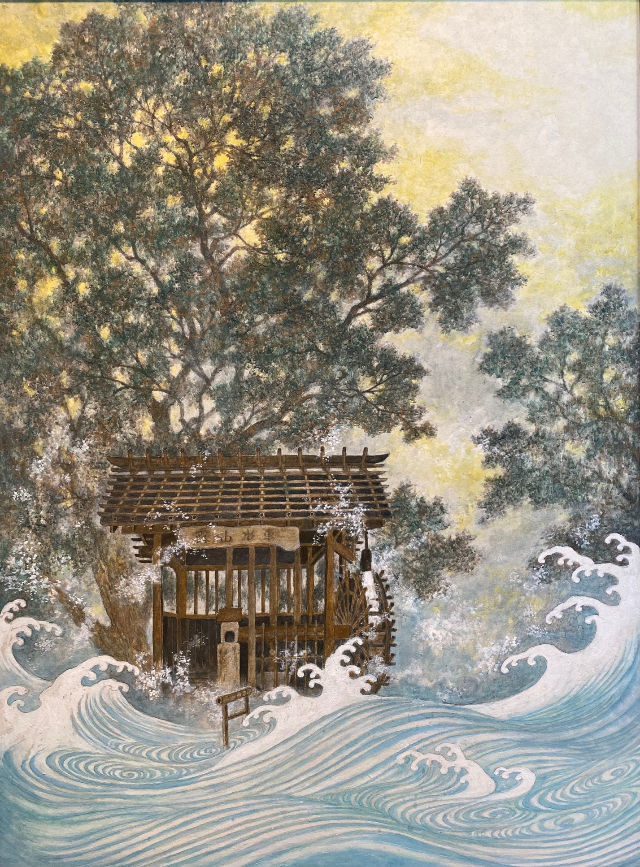Go high or go low?
- Rebecca Otowa
- Jul 27, 2020
- 4 min read

My mother was a great one for “tone of voice”. “Don’t use that tone of voice,” she would scold when we were sarcastic, rude, or mouthy – or even just rambunctious. Thinking about this as an adult, I realize she was talking about the meaning we give words by our tone.
Words aren’t just neutral signposts to indicate objects or ideas. Depending on how they are used, their meaning changes. For example, the word “Pig” is a sound indicating a certain type of animal, but it also has a nuanced meaning, coming from human culture, which includes concepts like “dirty”, “lazy”, “greedy” etc. Some of these nuances date back thousands of years, to the time before refrigeration and antibiotics, when pig meat carried disease and pigs were therefore saddled with this image. The poor pig, which is actually very intelligent, and no dirtier than any other animal forced to live in its own filth, is maligned because of the meaning humans have come to associate with its name.
Recently on social media I was involved in a discussion about the Japanese word gaijin. Literally “outer person” or “outside person”, it simply means “foreigner”. I was drawn to reflect on the various meanings and usages of this word. (The Japanese word for “meaning” itself, imi, is a combination of the characters for mind or consciousness and taste. The taste of the mind – meaning. This is interesting. And what of the word “meaning” – what does it mean? Is it related to the word “mean”, describing a person who selfishly hoards things or emotions? I know, I know… Google it. But sometimes meditating on these things also yields good results.)
In Japan it is easy to pick out the foreigners in a crowd, because the citizenry is relatively homogeneous in appearance. The “typical” Japanese is short and slim, with short legs and a long torso; black straight hair; brown eyes of a particular shape (what we used to call “slanted”), and relatively smooth and hairless skin of a brownish or olive or yellowish color. In contrast, foreigners have brown or blond or red hair, larger builds, different color eyes, different types of skin in color and texture. If you live in Japan but come from somewhere else, especially a western country, you stand out and people think of you as a gaijin.
End of story? Not quite.
When I was a student in Kyoto in the 70s, many homes didn’t have their own bath. People went to the public bath, a short stroll away. I did too. Invariably, in the bath area, small children would gather around me, contemplating my nakedness, sometimes bursting into tears at the shock of it, until rescued by their mothers who would explain, “That’s a gaijin.” The mothers never addressed me directly; perhaps they thought I didn’t speak Japanese. The whole scenario was quite galling for me. Since then I have had many experiences with this word and its various meanings, as have all the other non-Japanese who live in Japan. Dealing with it is part of our lives. We aren’t abused or spat on, but the feeling of not being accepted, of not belonging, is one we have to come to terms with all the time.
Every culture has its word for those who are not part of that culture, sometimes quite specifically targeting outsiders of a particular race or religion. “Sassenach”, “infidel”, “haole”, “ojos claros” -- the list goes on. The Greeks gave us the term “xenophobia”, which literally means “fear of the other”. Animals have it: fights among animals arise when a stranger invades another’s territory. We human beings are not free of this biological reaction. Those who are different provoke ancient fears and hatreds in us.
And yet, in this world of ours, one might argue that peaceful coexistence is actually more common than fighting and hatred – it just doesn’t get the same amount of screen time. I am fond of the BBC Radio series made by the British Museum, “A History of the World in 100 Objects”. It’s quite obvious, especially when looking at man-made objects from thousands of years ago, that a large part of people’s experiences with “outsiders” has been peaceful and mutually beneficial. A stone axe found in Britain was made from serpentine stone quarried in northern Italy. Spanish gold items from the Renaissance show the artistic influence of Persia. The sweeping tale of this urge to find ways to cooperate and create things together, often over huge distances and with what we nowadays would call primitive transportation and communication, has unfortunately been swamped, in popular history, by stories of wars and tyrants. That’s because those latter stories push our archaic buttons – they grab our attention due to our biological urge to see strangers as evil or threatening.
Is this simply a case of levels of the brain – which level we choose to operate from? Because we do have a choice between the “reptilian” or “lower” brain, full of fear, pain, anger and hatred, or the prefrontal, “higher” brain which can see past superficial differences and cultivate compassion, empathy, oneness and love. Is it easier to allow one’s lower-brain buttons to be pushed, and is it more challenging, and therefore more difficult, to “take the high road”? If we are feeling threatened, or if our lives are difficult, then it seems we are more apt to choose the archaic button reaction. It’s when we are happy and at peace with our lives that have the emotional room to accept humanity warts and all, even strangers, even people who don’t share our opinions. It seems to require a little space to say “Wait a minute…” and think more deeply, allow the empathy and love to creep in, and many of us feel like we just don’t have that extra space.
The Dalai Lama once said, “If you want to be happy, practice compassion. If you want others to be happy, practice compassion.” So, empathy with others is beneficial to oneself. Another quote, attributed to the Buddha, says that “holding onto anger is like grasping a hot coal with the intent of throwing it at someone else – you are the one who gets burned.” So, go high or go low? I know which one I always wish to choose – though my intention is often subverted. Still, there is always another chance; that’s what ideals are. Robert Browning wrote, “A man’s reach should exceed his grasp – or what’s a Heaven for?”



Yup. "Gaijin" is a word used to mark people as "other." That's why I prefer "gaikokujin" in professional settings because at least it's more precise, and it's not used as a slur as much as "gaijin" is.